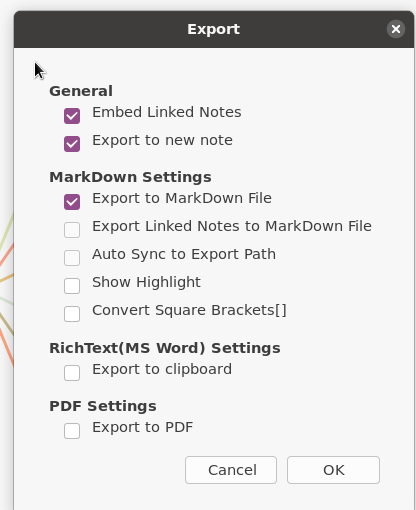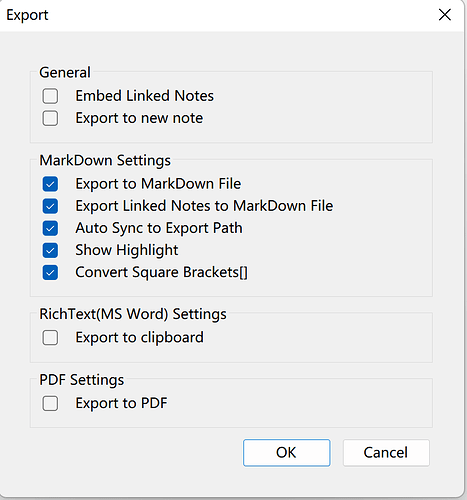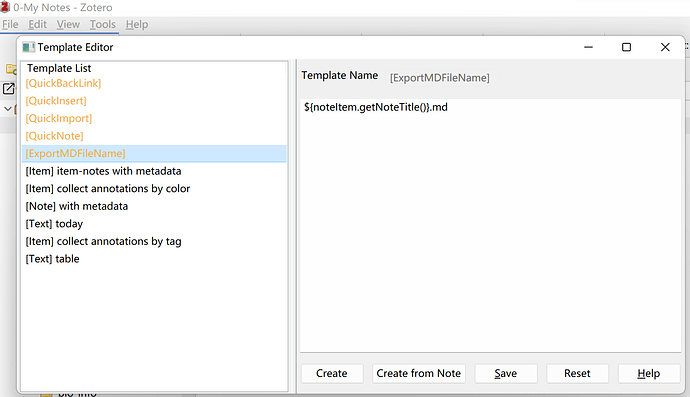I’d like to start a discussion on possible Logseq-Zotero workflows for scientific research.
The goal is to work towards a complete workflow that leverages the strengths of Zotero, Logseq, and a word processor. The first question is where to draw the boundaries between the different programs.
These are the typical steps that a researcher might follow:
-
Capture references
- Collect articles by searching Scopus, Google Scholar etc.
- Zotero is excellent, it is unlikely Logseq will be able to compete with the Zotero connector machinery
-
Manage references
- Maintain a database of articles
- Zotero seems to be the standard, even though others might prefer JabRef or similar
- This is not a space for Logseq to compete in
-
Annotate documents
- Read individual documents and add notes, capture screenshot, images etc.
- Zotero 6.0 added a great PDF reader and note editor, which still has some limitations
- Math formulas are not supported
- Only pdf is supported, no epub, html, djvu
- Code snippets are not supported
- There is no linking/referencing system that comes anywhere close to
Logseq’s capabilities - This is nearly a draw between Zotero and Logseq, but Logseq has a slight edge:
- Zotero has the advantage of closer integration with the literature database
- Logseq has the edge with respect to annotation and information management
- Zotero is not very open, annotations are stored in a database and currently there is no easy way to export them
- If Logseq was to provide more formats (epub, html, djvu), it could be far superior
-
Assemble information
- Combine information extracted from multiple individual documents
- Add own research notes
- Logseq was designed for this and is vastly superior.
- It is highly unlikely Zotero will ever be competitive in this space
-
Outline new article
- Create an outline of a new article
- Similar to 4., but some differences
- Needs ability to easily reference external materials, own diagrams etc.
- Export of content to next stage needs to be seamless and not lose any information
- While Logseq is an amazing outliner, export is not perfect. Need an easy way to copy and paste outlines into Word, including images and references. Ideally Logseq would export a .docx file with the reference information stored in
field codes(for Zotero bibliographies), or as\cite{}fields (for BibTeX).
- Candidates for outlining are Logseq and Word.
-
Write articles
- Currently most people are using Word and LaTeX
- Many constraints exist to fit into existing workflows (Templates from publishers, coworkers not used to other formats, need Word collaboration features etc.)
- While there are some attempts for scientific writing in Markdown (see e.g. Scientific Writing with Markdown | Jaan Tollander de Balsch), formatting requirements (footnotes, references, templates, typesetting) go beyond capabilities of basic Markdown
- For many fields, Word (or LaTeX) will remain the default option for a long time
How to split workflow between Zotero and Logseq?
The first big question is where to switch from Zotero to Logseq in the workflow. Zotero is superior for collecting and managing references (1. and 2.) and Logseq is superior for annotation and information assembly (3. and 4.).
While Zotero now has a solid annotation feature, I think it makes sense to annotate in Logseq instead, as this allows to seamlessly include the annotation in other documents, which would not be possible in Zotero.
Has anyone done an in-depth comparison between Zotero and Logseq PDF annotation? Are there any downsides of Logseq?
How to transfer data from Zotero to Logseq?
The next question is how to integrate Zotero and Logseq for a workflow that uses Zotero for collecting and managing references, and Logseq for annotating documents.
Options for integrating Logseq with Zotero and other reference managers:
- Loose integration through files: zotero writes a .bib or .csl-jason file and logseq opens these files for citing
- Advantages
- Simple, automatically updated export to files has already been implemented in BetterBibtex
- Loose coupling with Zotero, if Zotero is down everything still works
- Would also work with JabRef and other reference managers
- Disadvanteges
- No automatic creation of back-links from Zotero
- Advantages
- Tight integration with a custom Zotero client plugin: A plugin that runs in the Zotero client provides direct access to the Zotero database through a local web server. The plugin could provide bidirectional coupling and Logseq could modify Zotero items.
- Advantages
- No need for .bib export- Can automatically add a note to a Zotero item that links back to all Logseq pages that reference the item
- Disadvantages
- Zotero currently has no client-API
- Currently only option is to install local server into Zotero using the debug-bridge and then send js commands - Overly tight integration with Zotero: if Zotero is down or there is a problem with the plug-in Logseq doesn’t work either.
- Zotero currently has no client-API
- Advantages
- Integration using the Zotero web-API
- Not an option
- Expensive, needs unlimited Zotero subscription for any realistically-sized library
- No privacy, need to sync entire Zotero collection and annotations to cloud
- Doesn’t work when offline or when Zotero is down
- High latency, documents (potentially very large) and information not sourced locally
- Not an option
While it is tempting to try to set up a direct integration with the Zotero client, the lack of a supported client-API makes this approach somewhat sketchy. At the moment, the only realistic option is to use Zotero+BetterBibtex to write automatically updated .bib files, which can then be imported by Logseq. Probably BetterBibtex needs to export a more complete set of information for each file, including the item identifiers, so that Logseq can automatically add zotero://select links, but this is a minor issue.
Did I miss any options for Zotero integration?
How to get outlines from Logseq into Word/TeX?
The third question is how to turn a Logseq outline into a complete article. Most likely, Word and LaTeX will stay with us for a while. While Logseq can export to html and hopefully soon pandoc, this process isn’t very robust and doesn’t seem to work well for e.g. images, formulas, and references. Realistically, one will need to manually re-enter all references, formulas, and images into the pasted text. It might be best to do the outlining directly in Word.
Has anyone any experience actually outlining an article in Logseq and transferring the content to Word?
Any thoughts on other workflows?


